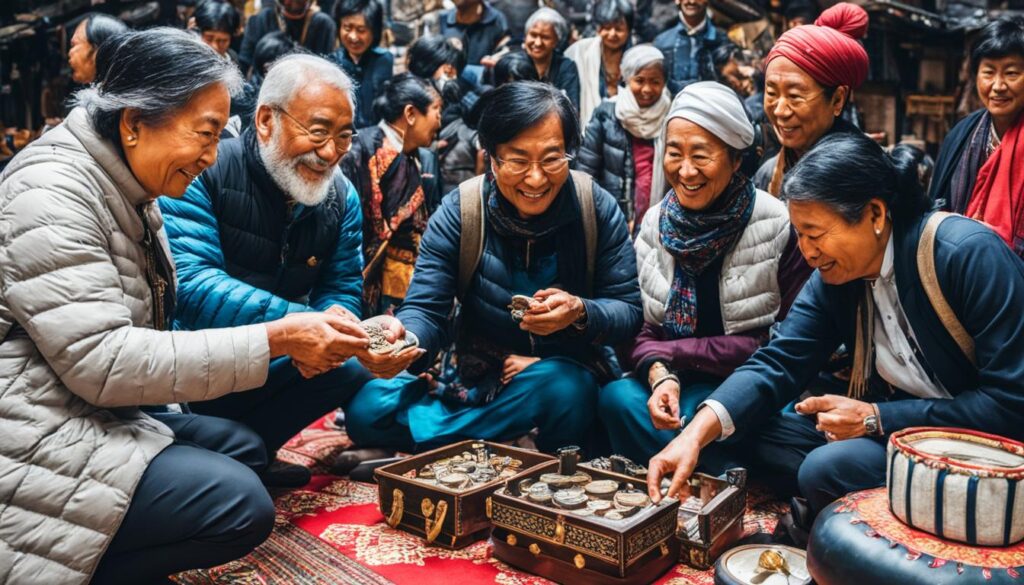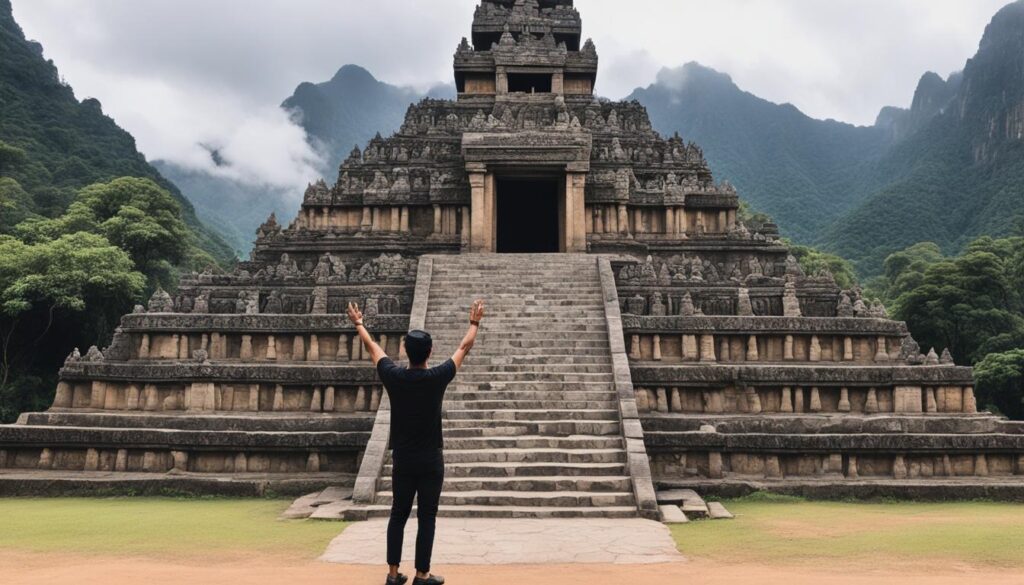Planning a trip overseas can be an exciting experience. Whether you are traveling for work or pleasure, it’s essential to be aware and respectful of the customs and traditions of the places you visit. Understanding and demonstrating cultural sensitivity can help ensure a positive travel experience for you and the locals you encounter. In this article, we will provide tips and insights on how to respect local customs and traditions while traveling, along with the importance of cultural awareness while abroad. By implementing these guidelines, you can enrich your travel experience while fostering meaningful cultural exchanges.
Understanding Local Customs and Traditions
Before traveling to a new country, it’s important to educate yourself on the local customs and traditions. Honoring local traditions and cultural practices when traveling shows respect for the local community and can enhance your overall travel experience. To gain a basic understanding of the local culture, research the following:
Etiquette
Etiquette norms may vary significantly between countries, so take the time to research and familiarize yourself with basic etiquette practices. This includes greeting customs, table manners, and body language.
Traditions
Learning about local traditions can help you avoid accidentally offending locals. It could be something as simple as removing your shoes before entering a household or the way you interact with people of different genders.
Norms
Understanding cultural norms is critical when interacting with the local community. For instance, some countries may have specific dress code requirements for places of worship or strict laws around drinking alcohol.
By taking the time to research local customs, you can demonstrate cultural sensitivity and show respect for the local community. Doing so can help you create lasting memories and positive experiences during your travels.
Demonstrating Cultural Sensitivity
When traveling abroad, it’s vital to understand and respect the local customs and traditions to show cultural sensitivity. Merely being aware of these practices is not enough; your behavior, dress, and interactions should reflect this respect. Here are some practical tips on demonstrating cultural sensitivity:
- Dress appropriately: Researching the dress codes and cultural norms of your destination will help you avoid unintentionally offending locals. In some countries, for example, it’s respectful to cover your head or remove your shoes before entering certain buildings or institutions.
- Learn basic etiquette: It’s essential to learn some common phrases and greetings in the local language, as this can help you connect better with people you meet. Try to avoid non-verbal cues that are considered offensive in some cultures, such as pointing or exposing the soles of your feet.
- Observe and follow local customs: Make an effort to understand and follow local customs and traditions, such as table manners, religious practices, or gift-giving etiquette. Always ask before taking pictures of people, especially in religious or sacred sites.
- Be aware of cultural differences: Different cultures have different approaches to communication, personal space, and time management. Be prepared to adapt to local customs and show respect for their way of life.
- Embrace diversity: By actively engaging in cultural activities and appreciating the customs and traditions of the places you visit, you demonstrate your respect and appreciation for diversity.
By demonstrating cultural sensitivity, you not only show respect for the local customs but also foster deeper connections with the people and culture of your destination.
Dressing Appropriately
Respecting local etiquette and cultural sensitivities is essential when traveling abroad. One way to show respect is by dressing appropriately. Different countries and regions have their own unique customs and traditions, and dressing in a way that aligns with them demonstrates cultural sensitivity and awareness.
Before packing for your trip, research the appropriate attire for your destination. Religious and cultural considerations should also be taken into account when selecting clothing. For example, in many Muslim countries, it is customary for women to dress modestly, covering their head, arms, and legs. In some countries, it is considered disrespectful to show too much skin or wear revealing clothing.
When choosing clothing for your trip, consider the climate and weather as well. If you are visiting a conservative country with a hot climate, look for lightweight and breathable clothing that covers your skin. In colder regions, opt for warm, comfortable clothing that aligns with local customs.
Examples of Appropriate Attire
| Destination | Appropriate Attire |
|---|---|
| Japan | Avoid flashy or revealing clothing. Choose modest clothing, such as dresses or skirts that fall below the knee, and shirts with sleeves that cover your shoulders. Remove your shoes when visiting temples. |
| India | Wear clothing that covers your shoulders, chest, and legs. Avoid tight-fitting clothing or clothing that exposes your midriff. Consider wearing traditional Indian clothing, such as a saree or kurta, for special occasions or events. |
| United Arab Emirates | For women, wear clothing that covers your arms, legs, and neckline, such as long dresses or skirts and tops that are not too tight or revealing. Men should avoid wearing shorts or sleeveless tops in public areas. Abayas (full-length black robes) and hijabs (headscarves) are also commonly worn by women. |
By dressing appropriately, you can show respect for the local customs and traditions and have a more enjoyable travel experience. Remember to research the appropriate attire for your destination and be mindful of religious and cultural considerations when selecting clothing.
Understanding Non-Verbal Communication
When traveling abroad, it’s important to be mindful of non-verbal communication, which can vary greatly across cultures. Even a seemingly innocent gesture could unintentionally convey disrespect. Here are some common non-verbal cues and gestures to be aware of:
| Non-Verbal Cue | Possible Interpretations |
|---|---|
| Thumbs Up | In some countries, such as Iran, Greece, and parts of the Middle East and South America, it’s considered offensive. |
| Eye Contact | In some cultures, such as Japan or South Korea, prolonged eye contact is seen as a sign of aggression or a challenge to authority. |
| Personal Space | The acceptable amount of personal space varies across cultures, with some cultures valuing more personal space than others. |
To avoid misunderstandings, it’s best to observe and imitate local behavior. Pay attention to how locals interact with each other and adopt a similar approach. If in doubt, it’s always best to ask for clarification or apologize if you inadvertently cause offense.
Embracing Local Traditions and Practices
There’s no better way to respect local customs than by embracing and participating in cultural activities. Every destination you visit has its unique traditions and practices that make it special. By embracing them, you demonstrate your interest, appreciation, and respect for the local culture.
One of the best ways to immerse yourself in local traditions is by attending festivals, parades, and other cultural events. Not only will you have a great time, but you’ll also get an insight into the local customs and values.
Another way to embrace local practices is by trying local food. Each region has its own traditional dishes that reflect its culture and history. Be adventurous and sample new flavors and combinations – you might discover your new favorite dish.
Participating in local practices also means being respectful of religious and ceremonial customs. Whether it’s covering your head or taking off your shoes in a temple or respecting a local dress code, it’s essential to honor these traditions and show sensitivity towards them.
Embracing local traditions and practices is not just about having a good time; it’s about fostering cultural understanding and appreciation. By showing respect and interest in the local customs, you’ll also be seen as a respectful traveler, welcomed and appreciated by the locals.
Respecting Sacred Sites and Symbols
When traveling to a foreign land, it is important to be aware of their beliefs and values related to religion and culture. Many destinations have sacred sites and symbols that hold deep religious or historical significance. Visiting such places requires a high level of respect and reverence, as they are often regarded as the heart and soul of the community.
To honor local traditions and respect customs in foreign countries, it is essential to follow certain rules when visiting sacred sites and symbols. Here are a few guidelines:
Do Your Research
Before visiting any sacred sites or symbols, it is important to educate yourself about the local customs and beliefs related to them. Research the significance and history of the site to demonstrate respect and avoid unintentional disrespect.
Dress Appropriately
When visiting religious sites, dressing appropriately is critical. Usually, visitors are required to dress modestly, cover their arms and legs, remove shoes or headcoverings, or wear specific clothing. Check the guidelines beforehand to demonstrate respect for the religious and cultural customs.
Observe the Rules
Every sacred site has its rules and guidelines that must be followed strictly. For example, photography may be prohibited, or visitors may be asked to keep complete silence. Before entering, check the signs or information boards to know what is required of you.
Be Respectful
When visiting a sacred site or symbol, it is recommended to maintain a respectful demeanor. Keep conversations low, don’t disturb the peace, and don’t litter. Do not touch any symbol, unless you have permission, and avoid behaving disrespectfully or conducting any religious practices, unless you are authorized.
By following these guidelines, you can pay your respects and demonstrate your honor for local customs and traditions when traveling abroad. Remember, every culture and religion has its unique set of beliefs and values, and demonstrating respect for those will enhance your travel experience, increase cultural awareness and create memorable experiences for a lifetime.
Interacting with Locals
As a traveler, interacting with locals is an excellent way to learn about their culture and way of life. It is essential to understand their expectations and customs, as it can impact the nature of your engagement. In this section, we will provide guidance on respectful language, greetings, and conversation topics to ensure meaningful interactions with locals.
Cultural awareness while abroad is a crucial aspect of interacting with locals. It would help if you were mindful of your tone and language, avoiding any phrases that may be offensive or culturally insensitive. Learning a few basic words or phrases in the local language, such as “hello” and “thank you,” can also go a long way in showing respect for the local culture.
When greeting locals, be aware of the local customs. Some cultures prefer a handshake, while others prefer a bow or a kiss on the cheek. Researching these customs before your travels can help avoid any unintentional blunders.
It’s also essential to be aware of safe and appropriate conversation topics. Avoid discussing sensitive issues such as politics or religion unless you know the person well. Instead, try discussing local foods or cultural events; this can create a positive and enjoyable engagement.
Remember that cultural sensitivities for travelers require continuous learning and respect for cultural differences. Be open-minded and willing to learn and engage with locals to broaden your cultural awareness.
The Do’s and Don’ts of Interacting with Locals
| Do’s | Don’ts |
|---|---|
| Learn a few basic words and phrases in the local language. | Speak too fast or with a condescending tone. |
| Respect the local customs and traditions, such as greetings and dress codes. | Assume that everyone shares the same values and beliefs as you do. |
| Be patient and open-minded. | Criticize or judge their way of life. |
| Ask questions to show interest in their culture. | Discuss sensitive issues such as politics or religion. |
| Be polite and courteous. | Take photographs without permission or in sacred places. |
Responsible Tourism and Ethical Considerations
As a responsible traveler, it is essential to be mindful of your impact on the local customs and traditions of the places you visit. By respecting cultural sensitivities and local customs, you can help preserve the unique heritage of the destination you are visiting and create a positive impact on the local community. Here are some ethical considerations to keep in mind while traveling:
Support Local Businesses
One way to support the local community is by choosing to do business with locally owned establishments. By doing so, you are supporting the local economy, which helps to preserve the culture of the destination. Be sure to visit local shops, eateries, and markets that use locally sourced ingredients and materials.
Minimize Single-Use Plastics
As a traveler, it is important to be mindful of the environmental impact you have on the places you visit. One way to reduce your impact is by minimizing the use of single-use plastics. You can bring a reusable water bottle, tote bag, and other eco-friendly items with you on your travels.
Respect the Environment
Always respect the environment and wildlife of the places you visit. Do not litter, and be sure to properly dispose of any waste. Leave natural sites undisturbed, including coral reefs, beaches, and forests.
Be Mindful of Photography
While taking pictures is a memorable part of any travel experience, it is important to be mindful of cultural sensitivities when photographing people or sacred sites. Always ask for permission before taking someone’s picture, and respect any signs that prohibit photography in sensitive areas.
By following these ethical considerations and respecting the customs of the places you visit, you can help preserve the unique heritage of the destination and contribute to sustainable tourism practices. With cultural sensitivity and responsible tourism, you can create a positive impact on the places you visit while also enriching your travel experience.
Conclusion
In conclusion, respecting local customs and traditions while traveling is crucial for creating a positive travel experience and fostering cultural understanding. By educating yourself about the local culture, demonstrating cultural sensitivity through your behavior and interactions, dressing appropriately, embracing local traditions, respecting sacred sites, interacting meaningfully with locals, and practicing responsible tourism, you can ensure that you honor the local customs and traditions of the places you visit.
Remember, understanding and respecting cultural practices when traveling is an ongoing process, and it requires active engagement and learning. By adopting a curious and open-minded attitude, you can gain a deeper appreciation for the unique heritage of the places you explore, and create lasting memories that transcend borders and cultures. So, how can you respect local customs and traditions while traveling? By embracing the diversity of our world, and celebrating the things that connect us as human beings. Happy travels!

















































